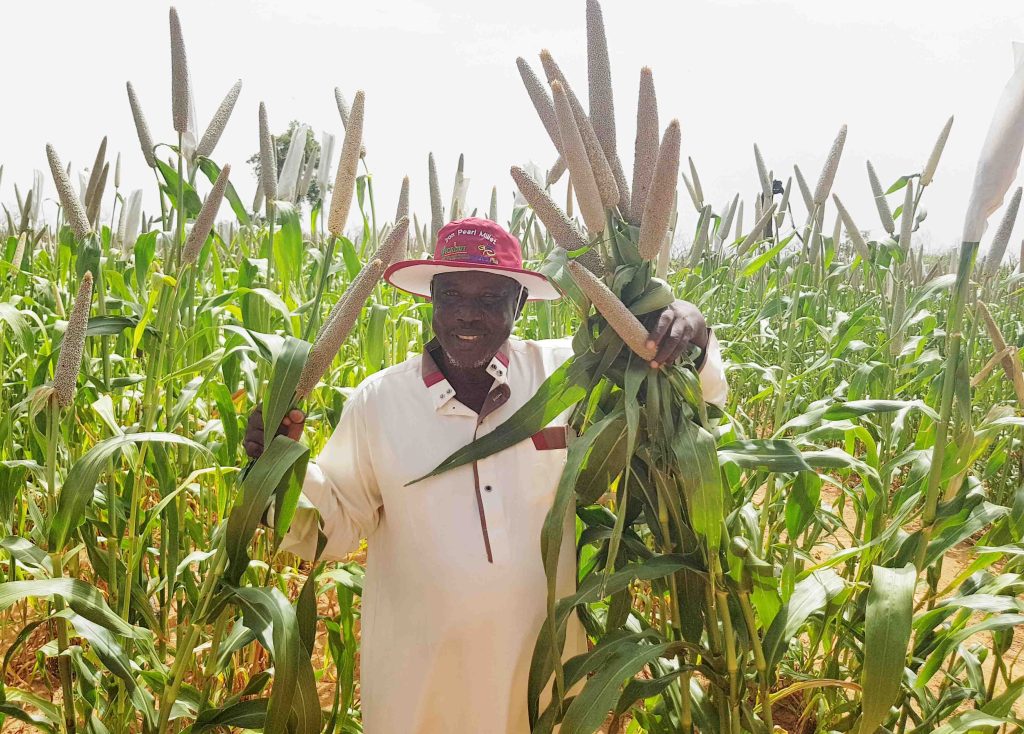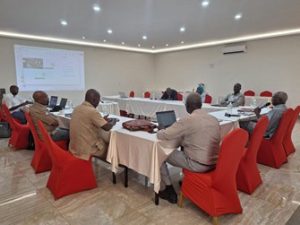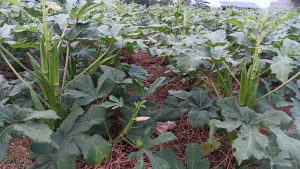Transforming the Sahel into a Bread-Basket: TAAT Launches Phase II Activities in Mali

The Technologies for African Agricultural Transformation (TAAT) has launched the second phase of its activities in the Sahelian region. The launch, which held from the 5th to 7th of March 2024 at the Research Station of the International Crops Research Institute for the Semi-Arid Tropics (ICRISAT) in Samanko, Mali brought together key stakeholders to elaborate a common strategy for adopting and scaling available technologies to double productivity in the Sahel.
The stakeholders were drawn from diverse sectors, including research, extension, private sector, farming communities, women and youth groups, agricultural input supply, development and processing enterprises, and the media.
In his opening remarks, Hon Lassine Dembélé, the Malian Minister for Agriculture, lauded the launch of TAAT phase II activities in the Sahelian countries of Senegal, Burkina Faso, Mali and Niger with emphasis on Sorghum and Millet.
Represented by Mr Oumar Tamboura, the Permanent Secretary at the Agriculture Ministry, the minister expressed optimism that the launch event will strengthen the institutional framework and environment to support the implementation of TAAT activities across the countries. Hon Dembélé emphasized the critical role of agriculture in the subregion and commended the collaboration between TAAT through ICRISAT and the national research institute, the Institute of Rural Economy (IER).
In a goodwill message at the launch, Mr Adalbert Nshimyumuremyi, the AfDB Country Manager for Mali, highlighted the African Development Bank’s significant investment in Malian agriculture and underscored the bank’s commitment to supporting TAAT’s vision of transforming the Sahel into a bread-basket.
Dr Dougbeji Fatondji, the TAAT Sorghum and Millet Compact Leader provided an overview of the TAAT project, attributing its origins to the success of the Feed Africa strategy of the bank. He highlighted the imperatives and challenges facing agriculture, made a case for TAAT’s deployment of path-breaking technologies that are capable of transforming the Sahel into a bread-basket, and showcased some of the technologies on offer.
According to Dr Fatondji, “This launch marks a significant stride in the implementation of TAAT Phase II as the Sorghum and Millet Compact seeks to enhance food security and improve the livelihoods of farming communities in the Sahel region by scaling up proven technologies.”
“By promoting sustainable intensification and enhancing the profitability of these vital crops (sorghum and millet), the Compact will catalyse positive change in agricultural practices while collaborating closely with the National Research and Extension Systems (NARES) and the private sector in the respective Sahelian countries,” Dr Fatondji added.
The launch equally provided an opportunity to engage key stakeholders in charting the course for the implementation of TAAT Sorghum and Millet Compact activities across participating countries. Additionally, discussions centred on the coordination of two TAAT Enabler Compacts, namely, Fall Armyworm (FAW) Management led by the International Institute of Tropical Agriculture (IITA) and the Soil Fertility Management Compact led by the International Fertiliser Development Centre (IFDC).
Deliberations at the event encompassed various aspects such as specifying intervention sites, identifying existing or potential Innovation Platforms, formulating partnership models, finalising activity planning and budgeting, and training on the monitoring-evaluation tool (MPRO).
The successful launch event equally marked the formal commencement of work on charting the pathway for seed sector development guided by a seed roadmap that will boost the supply of quality seeds of climate-resilient and market-preferred varieties of Sorghum and Millet to respond to the increasing need for food in the Sahel region and advocate for more investments in sustainable food production systems for economic prosperity, including job creation and access to nutritious foods.
Recent Stories
Related Stories
- Sustainable cassava seed system is crucial to fighting hunger in Africa – Chief Olusegun Obasanjo
- African Development Bank approves phase II of TAAT programme
- TAAT, AfricaRice and Partners eye Rice Value Chain Revolution across Africa
- TAAT Renews commitment to transforming irrigation in Africa
- ToT Initiative for Good Practices and Quality Seed Use: How TAAT is Building Capacity Food Systems Resilience in Fragile States





